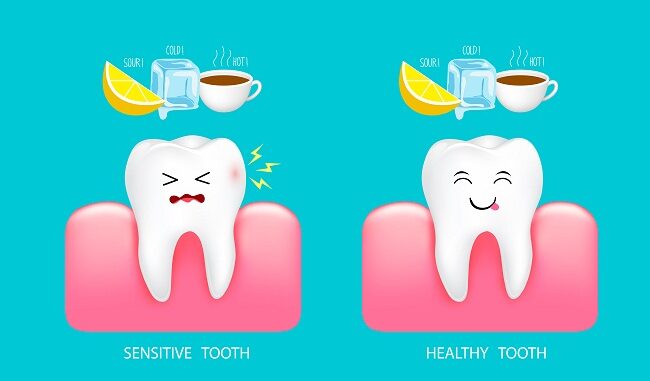
Tooth sensitivity, also known as dentin hypersensitivity, is a common dental problem that affects millions of people worldwide. It manifests as a sharp, temporary pain or discomfort in response to various stimuli such as hot, cold, sweet, or acidic foods and beverages, as well as brushing and flossing. While tooth sensitivity can be disruptive and uncomfortable, there are numerous strategies and treatments available to address it effectively. In this comprehensive guide, we’ll explore various methods and techniques for addressing tooth sensitivity and achieving lasting relief.
Understanding the Causes of Tooth Sensitivity:
Before delving into solutions, it’s important to understand the underlying causes of tooth sensitivity. Several factors can contribute to sensitive teeth, including:
- Enamel Erosion: The outer layer of the tooth, known as enamel, can wear down over time due to factors such as acidic foods and beverages, aggressive brushing, or teeth grinding (bruxism). When enamel is compromised, it exposes the underlying dentin layer, which contains microscopic tubules that lead to the tooth’s nerve center, resulting in sensitivity.
- Gum Recession: Receding gums, often caused by gum disease or aggressive brushing, can expose the sensitive root surfaces of the teeth. When these roots are exposed, they become more susceptible to external stimuli and can cause discomfort.
- Dental Issues: Cavities, cracked teeth, and dental procedures such as fillings or crowns can lead to tooth sensitivity, as they may expose the inner layers of the tooth to external stimuli.
- Bruxism: Grinding or clenching the teeth, especially during sleep, can wear down the enamel and contribute to tooth sensitivity over time.
- Acidic Foods and Beverages: Consuming acidic foods and beverages, such as citrus fruits, carbonated drinks, and vinegar-based dressings, can erode enamel and exacerbate tooth sensitivity.
Effective Strategies for Addressing Tooth Sensitivity:
Now that we’ve identified the common causes of tooth sensitivity, let’s explore some effective strategies for addressing it and achieving lasting relief:
- Use a Desensitizing Toothpaste:
- Choose a toothpaste specifically formulated for sensitive teeth, containing ingredients such as potassium nitrate or strontium chloride, which help block nerve signals and reduce sensitivity over time.
- Brush your teeth gently with a soft-bristled toothbrush, using a circular motion to avoid further enamel erosion.
- Maintain Good Oral Hygiene:
- Brush your teeth at least twice a day using fluoride toothpaste to strengthen enamel and protect against cavities.
- Floss daily to remove plaque and food particles from between teeth and along the gum line, helping to prevent gum disease and reduce sensitivity.
- Avoid Acidic Foods and Beverages:
- Limit consumption of acidic foods and beverages, or rinse your mouth with water afterward to neutralize acid and minimize enamel erosion.
- Use a straw when drinking acidic beverages to minimize contact with the teeth.
- Watch Your Diet:
- Consume a balanced diet rich in calcium and vitamin D to support healthy teeth and bones.
- Limit sugary snacks and drinks, as these can contribute to tooth decay and exacerbate sensitivity.
- Practice Good Oral Habits:
- Avoid clenching or grinding your teeth, especially during sleep, by using a mouthguard or relaxation techniques to reduce stress.
- Be mindful of your brushing technique, avoiding excessive force or aggressive brushing that can damage enamel and exacerbate sensitivity.
- Visit Your Dentist Regularly:
- Schedule regular dental checkups and cleanings to monitor the health of your teeth and gums and address any issues before they worsen.
- Your dentist may recommend treatments such as fluoride varnish or dental sealants to strengthen enamel and reduce sensitivity.
- Consider Desensitizing Treatments:
- Your dentist may recommend in-office treatments such as fluoride varnish, desensitizing agents, or dental bonding to alleviate tooth sensitivity and protect against further damage.
- Address Underlying Dental Issues:
- If tooth sensitivity persists despite home care efforts, consult with your dentist to identify and address any underlying dental issues, such as cavities, cracked teeth, or gum disease.
By incorporating these preventive strategies into your daily routine and seeking professional dental care when needed, you can effectively address tooth sensitivity and enjoy improved oral health and comfort. Remember, consistency is key, so make these habits a regular part of your lifestyle for long-term relief from tooth sensitivity and a brighter, healthier smile.